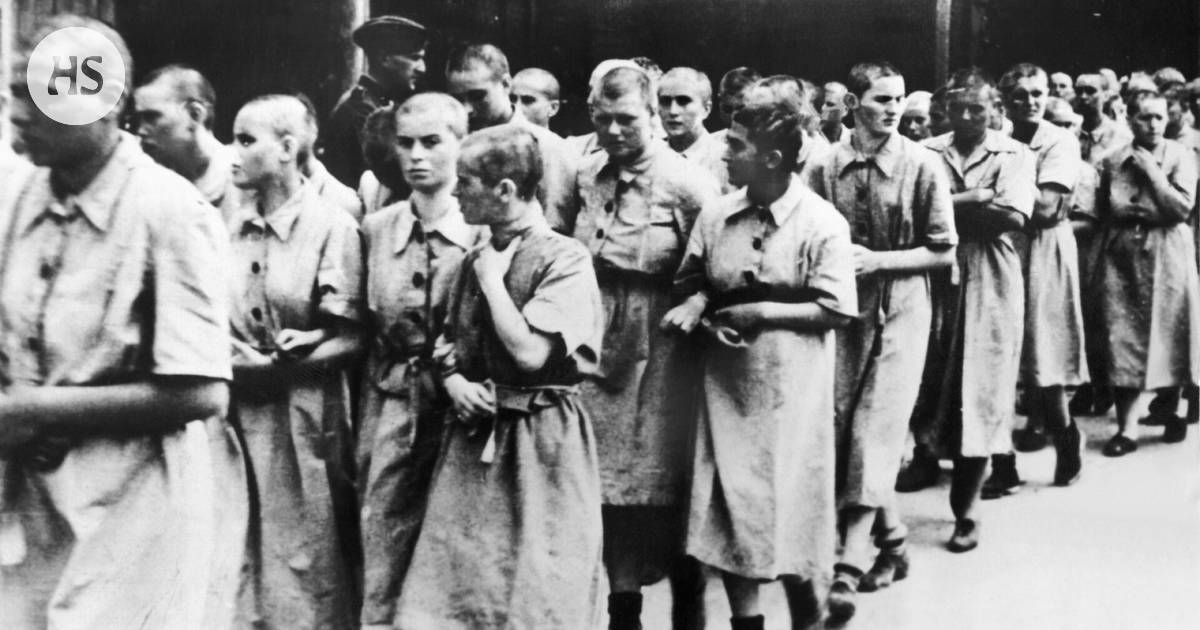Katriina Huttunen’s Holocaust essays are frantic testimony.
Essays
Katriina Huttunen: Afterlife. Uncomfortable thoughts about Holocaust literature. Oak. 400 pp.
Katriina Huttunen is a translator of Nordic literature and has written a few works himself. The publisher characterizes him as a “death grief writer specializing in suicidal guilt”. Huttunen has chosen his side.
After her daughter’s suicide, Huttunen has written about her grief and feelings of guilt. Grief is usually talked about as a phase that should be overcome in order to continue living. Huttunen has a completely different opinion. He doesn’t want to recover, but to bathe in sadness even when the water is already black.
Same thing with guilt. This is a fresh idea because the automatic assumption is that everyone wants to get healthy.
Damn it collection of essays Postmortem deals with the Holocaust, but also the matter closest to him: “Primarily, I read Holocaust literature because of sadness. My daughter, who committed suicide at the age of 26, teaches her mother that death belongs to everyone.”
He is interested in those who survived the genocide, but did not survive. “Those who survived the Holocaust are condemned to life, and they are victims and criminals, persecuted and persecutors, innocent and guilty, perpetrators and bystanders.”
We will visit the book through contemporary accounts, eyewitness testimonies, diaries, reports and fictional concentration camp descriptions – a breathtaking amount. There are enough detailed and ugly descriptions of death.
I will take just one example. Executed in Auschwitz Josef Mengele in a human experiment, a hunchbacked father and his club-legged son. The bodies were boiled so that their skeletons could be examined. Polish masons ate boiled meats.
The descriptions are meant to startle.
From the afterlife there is new information even for a “Holocaust enthusiast” like me. For example, I didn’t know about the Zionist Nakam organization that was influential after the war, whose goal was to kill six million Germans or at least the SS men who were captured in revenge. Nakam executed 1,500 war criminals.
Postmortem reminds, surprisingly, Iida Rauma Destruction– novel. Both Rauma and Huttuse have a mad desire to prove that the crime happened, to find out and right the wrong. The books are also united by the fact that the intensity of the text does not slacken at any point.
There where Destruction is a barrage of accusations against bullies, Postmortem sprinkles guilt everywhere. The survivors felt guilty for not dying. The perpetrators of the Holocaust were guilty of “ignorance”. As a Nordicist, Huttus is troubled by Norwegians’ cooperation with Germans. “The blind eyewitness, the innocent guilty and the selectively deaf are all guilty.”
Katriina Huttunen
This is a Christian bad conscience. Philosopher Friedrich Nietzsche defined it as “the will to find oneself guilty and condemned to the point of irreconcilability”. Nietzsche saw a connection between guilt and debt. Huttunen quotes a concentration camp writer Elie Wiesel: the survivors owe the dead everything.
Huttunen deals with his extensive material from a clearly defined point of view, which is essential for such a popular topic.
In concentration camp literature a lot of survivor stories are published nowadays, in recent years for example Auschwitz tattooist and Cilka’s story. The central idea of the afterlife is to resist the survivor narrative. This is exactly what makes the work exceptional and great.
An important background influencer of the work, a Holocaust researcher Lawrence L. Langer harshly criticizes the recurring pattern of faith and hope in good-natured concentration camp entertainment. He criticized it psychiatrist Victor E. Franklin presented the thesis that the camp prisoner could choose whether to face the circumstances bravely or give in to them.
Survival in Auschwitz was determined by chance, Langer writes, and the willpower of the victims was of no importance. This is an uncomfortable – and at the same time pleasant – thought for Huttuse.
It is hardly surprising that Huttunen values Holocaust writers who have ended up committing suicide as the most famous Primo Levi. Huttunen names his “suicide guru” Jean Améryfor whom suicide represented the last freedom.
Hope is the most dangerous enemy of a Holocaust victim, writes a concentration camp author who also committed suicide Tadeusz Borowski. Huttunen, on the other hand, stated in his essay in 2021 that hope is the most dangerous enemy of sadness.
Postmortem means the legacy left to the next generations: the holocaust must not be forgotten.
This has not happened. The subtitle of every Holocaust documentary film and book is “we must never forget”. Huttunen is looking for stumbling blocks, memorials placed on the street in different countries. The stone reads the name of the Holocaust victim, his years of life and what happened to him. Germany is still running the world’s most successful genocide processing process, Vergangenheitsbewältigung.
So it has been remembered and mourned.
“Are we condemned to a regressive melancholy in which we strive to live everything again in order to correct and clarify everything?”, philosopher Jean Baudrillard asked in 1992.
Sounds like a curse.
Read more: Every day, Katriina Huttunen goes to one place and nowhere else – a daughter rests in the Hietaniemi cemetery, whose death the author blames herself for
#Book #review #survived #Holocaust #condemned #life #writes #Katriina #Huttunen #book #concentration #camps #grief







/s3/static.nrc.nl/bvhw/files/2023/11/data107401753-b51ae8.jpg)

